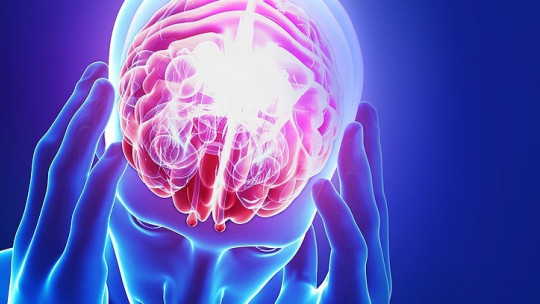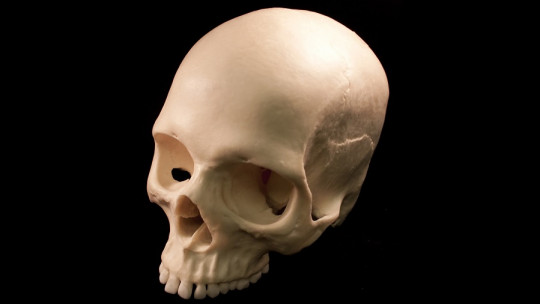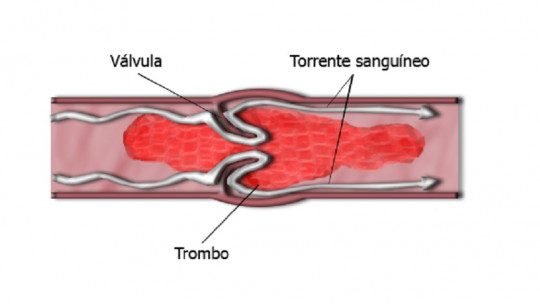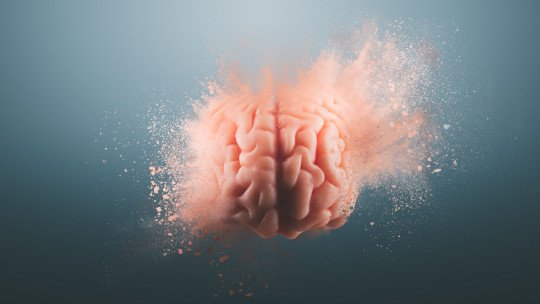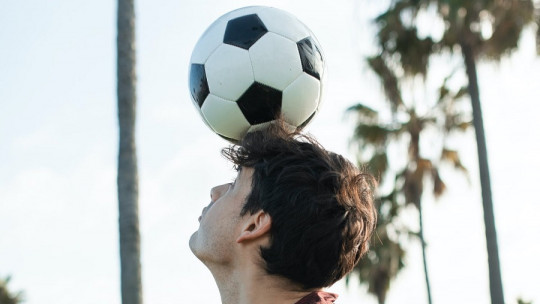
It is known that contact sports such as rugby, boxing or ice hockey, if proper protection is not taken, can damage our brain due to the blows received in them.
Many players in these sports have developed dementia and mental disorders associated with brain injuries that have caused all kinds of psychiatric symptoms at the end of their lives.
Although football is not considered a contact sport, its popularity has raised questions about whether it can cause problems for our brain, since impacts are also received on the head. Is playing soccer bad for the brain? This is the question that we are going to answer below.
Is playing soccer bad for the brain?
The practice of sports has always been recommended. All sporting activity is healthy, enhancing our physical and mental health since, in addition to keeping us in good shape, being physically active is a protective factor against mental disorders such as depression or anxiety and also helps prevent the appearance of brain diseases such as dementia.
But despite its advantages, the practice of contact sports such as rugby, ice hockey or boxing has been associated with brain injuries and, in the long term, neurodegenerative diseases. It is not that these sports are bad for our health, but if they are practiced in an unresponsible and cautious way they can cause concussions that end in brain damage
Soccer (European, traditional football) is without a doubt the king of sports. It is practiced worldwide and, although there are countries where it is not as famous, practically every nation in the world has its own national team for this sport. Although it is not a contact sport, Its popularity and the fact that passes are sometimes made with the head has made many wonder if it is bad for the brain to play football
As with contact sports, it is not that football in itself is bad. The practice of any sport is healthy but all of them involve certain risks that, if the appropriate safety measures are taken, the possible damage that may be suffered due to impacts to the head will be milder. If this occurs, it will be necessary to monitor the affected footballer to ensure that his neurological damage does not worsen.
Fortunately, to avoid the severity associated with these blows, Many professional sports have been approving the use of regulatory protective equipment, in addition to following rules and playing appropriately to avoid damage However, soccer is not characterized by having protection for the skull, even though the head is used to throw the ball, which, if done with great force, can pose a problem for our brain.
Chronic traumatic encephalopathy
Throughout the 20th century, head impacts during sports practice have increasingly been linked to dementia, brain diseases and mental disorders. One of the first terms used that linked impact sports with brain damage was dementia pugilistica identified for the first time in boxing players although its diagnosis would later be extended to other contact sports.
Nowadays this term is no longer in use, being replaced by chronic traumatic encephalopathy, which is a neurodegenerative condition in which the brain of the affected person has such damage due to the blows he has received in life that various psychiatric symptoms are induced It is this degenerative condition considered to be the main culprit behind professional contact sports athletes having higher dementia mortality rates than the normal population.
The countless times that boxers, rugby, hockey and American football players receive blows to the head, despite having protection, is presumably responsible for their increased risk of suffering from neurodegenerative diseases, such as motor neuron disease or Parkinson.
Chronic traumatic encephalopathy can only be diagnosed postmortem In life, those affected by this brain destruction manifest a wide range of symptoms. Memory problems, irritability, mood disorders, anger attacks, substance abuse, executive dysfunctions and other problems are what mark the daily lives of many retired athletes who in their later years enter a whirlwind of psychiatric problems.
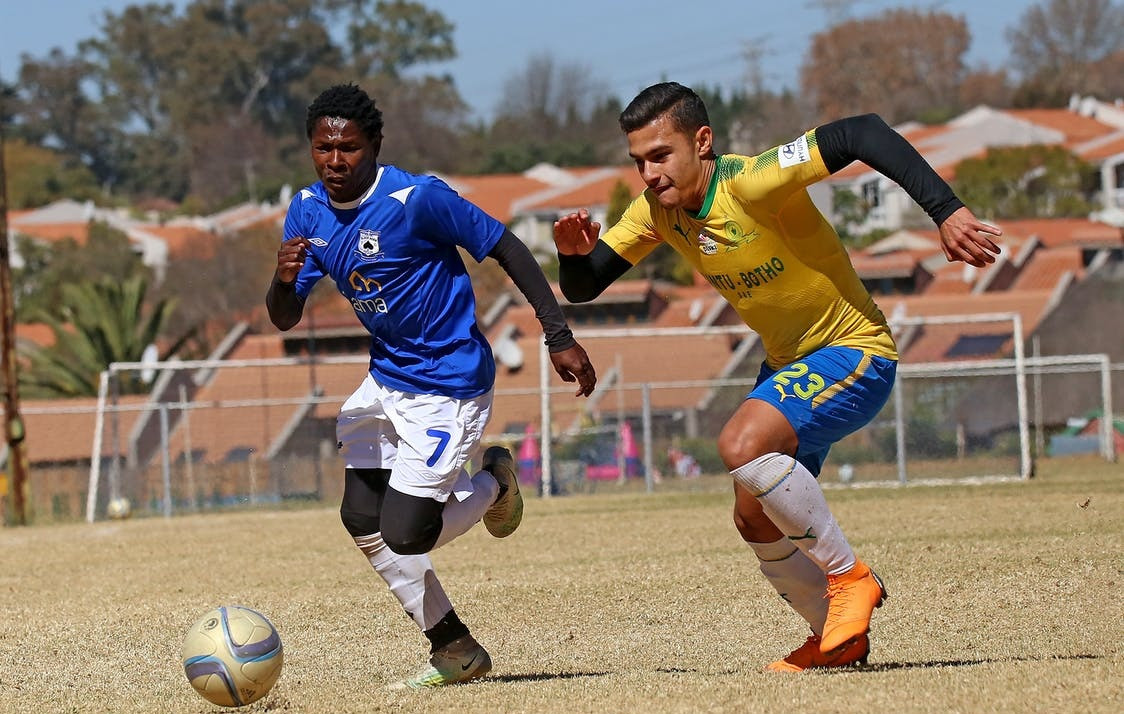
Are concussions important in football?
Unlike what it may seem, The brain is not made of rubber, but gelatin It is a tremendously soft organ that, despite being protected by a hard wall of cranial bone, is not saved from being damaged when there is a very strong blow. The brain is floating in cerebrospinal fluid, which gives it a certain freedom of movement that, when there is a cranial impact, causes it to rebound inside the skull, potentially causing cortical injuries.
It only takes a fall or a hard blow to the head for our brain to hit the walls of the skull and form brain bruises, tears in blood vessels, nerve injuries, or a loss of normal brain function both in the short and long term. These falls and head hits usually occur in soccer players with field positions, who can pass the ball with their head or collide with each other and fall, receiving a hard blow to the head.
In football, falls and blows to the head are rather anecdotal, uncommon when compared to contact sports It is true that more than one professional footballer has had to be taken off the field due to a bad blow, but they are not a frequent occurrence and, if you rest once you have suffered them, leaving the brain time to recover, these impacts are unlikely to become in future dementia.
However, there are cases of professional soccer players whose death is associated with having received many concussions. An example of this is the former English footballer Jeff Astle (1942-2002), a player for West Bromwich. Willie Steward, a British doctor, indicated in a report that Astle, who died with Alzheimer’s at age 59, had chronic traumatic encephalopathy as a result of the countless concussions he must have suffered in life. Jeff Astle was known as an expert at passing the ball with his head.
Despite Astle’s case, everything seems to indicate that serious brain trauma is rare in football, although it is important. It should be said that the probability of suffering from them varies depending on the position one has on the field, with the players with the lowest risk of suffering concussions being the goalkeepers with a risk equivalent to one third of the risk presented by the rest of the players, who run from here over there and they can crash into each other.
In a recent study carried out by the group of Emma R. Russell and colleagues (2021) it was found that The risk of developing a neurodegenerative disease was about 3.5 times higher in former professional footballers than in the general population The risk was also found to be highest among all field player positions, with the highest being among defenders who had a 5 times higher risk compared to the general population. There was a correlation between the possibilities of developing dementia and the length of the footballer’s professional career.
What are the signs and symptoms of a concussion?
There are several signs and symptoms that can indicate that we are suffering from a concussion while playing soccer. Concussion symptoms do not always appear immediately after impact, that is why it is advisable to be careful and assess how strong the blow was. Among the symptoms associated with a concussion that should concern us are:
Many of these symptoms coincide with those of chronic traumatic encephalopathy, only in this case they would appear after an occasional blow on the playing field. Likewise, to prevent this from evolving into long-term encephalopathy It is advisable to rest for a while, returning to play football only when a qualified professional recommends it after having reviewed our mental health status.
Concussions are very delicate and, although those who have suffered them may feel that they are feeling better now, all precautions are insufficient. Your head may no longer hurt or you may feel like you’re speaking fluently, but you may still have problems with coordination, balance, and thinking speed Only a doctor can know for sure.
But despite this, which is even common sense, the truth is that many players, both in football and other sports, are afraid of disappointing their team or coach, feeling pressured to return to playing sports even if they are not yet recovered. It is for this reason that in most regulated and professional sports leagues such as football, rugby, basketball and others there are rules about when players who have been diagnosed with a concussion can return to sports.
- Related article: “Concussion: symptoms, causes, treatment and diagnosis”
How to prevent concussions in football?
At this point, we can understand that the answer to whether playing soccer is bad for the brain is “it depends.” It depends on how we play this sport, if we take the appropriate measures to prevent concussions, if they occur, from getting worse
If we protect ourselves, follow the rules and behave with sportsmanship and calmness, all that playing football will mean for us will be having a good time with our friends while doing physical activity, which is beneficial for our health.
Next we will see Some ways to prevent concussions, both in football and any other sport, with or without contact commonly
1. Use the right equipment
It is vitally important to use the correct equipment when playing any type of sport, not just soccer. In the case of this sport, it is true that there are no helmets or head protectors, because normally one does not expect to receive a large impact on the skull.
However, since passes can also be made with the head, It is essential that the ball is of good quality, not too hard or too old
You can’t completely prevent concussions because there will always be falls and bumps, but at least the right material helps prevent serious injuries
2. Play safely
It is always preferable to pass the ball with your feet than with your head, even if the game allows it. Don’t take unnecessary risks and Always try to prioritize the use of your legs, limiting passes with your head
Also, play with sportsmanship, do not push or try to make the rival team’s players fall because even if you think that they will receive the impact, by cheating you may also receive part of the impact as well.
3. Stop when necessary
If you injure your head playing soccer, stop playing immediately The coach should know when one of the players should not continue playing to avoid serious injuries.
In case it is a match without a coach, between friends and friendly, do it by yourself. Your health is above the result of the match and you should not risk injuring your head a second time.
A second injury to the brain can lead to second impact syndrome which, although rare, can cause permanent brain damage and even death.
If you feel a little dizzy, ask a friend or another player to watch you by sitting next to you for a few minutes and, if necessary, accompany you to the emergency room to make sure there is no serious brain injury.


